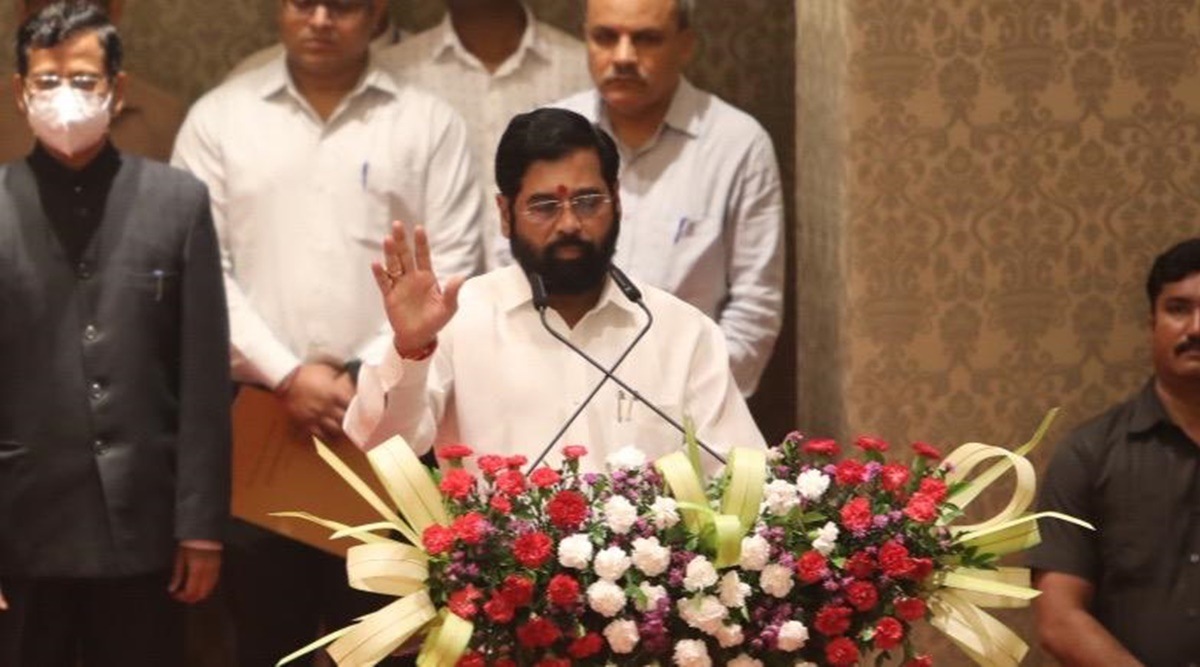 CM Eknath Shinde said underprivileged from from all castes can now avail the benefits of reservation. File
CM Eknath Shinde said underprivileged from from all castes can now avail the benefits of reservation. FileThe Supreme Court (SC) decision upholding 10 per cent quota for the Economically Weaker Sections (EWS) has reignited the issue of pending Maratha reservation in Maharashtra.
Reacting to the decision, Deputy Chief Minister Devendra Fadnavis on Monday said until the issue of Maratha reservation is resolved, economically weaker members of the community can benefit from the EWS quota.
“On the one hand, reservation on caste basis continues and, along with this, sections which were not qualifying in any quota but were economically weak now get protection. In Maharashtra, we are facing the question of Maratha reservation and, until this is resolved, economically weaker families from the Maratha community can benefit from the EWS quota. Along with this, poor families from minority communities can also avail its benefits. All individuals from EWS have found a way through this quota, for government jobs and in education,” he said.
Chief Minister Eknath Shinde welcomed the decision, saying underprivileged sections from all castes and categories can now avail the benefits of reservation. “It will help bring them into the mainstream,” he said.
In June 2017, the then Devendra Fadnavis government had constituted the Maharashtra State Backward Class Commission (MSBCC) headed by Justice (retired) M G Gaikwad to study the social, financial and educational status of the Maratha community.
The commission submitted its report in November 2018, classifying Marathas as a socially and educationally backward class (SEBC). The same month, the Maharashtra Assembly unanimously passed a Bill proposing 16 per cent reservation in education and government jobs for Marathas.
The Bombay High Court upheld the Constitutional validity of the reservation law but reduced the quota to 12 per cent in education and 13 per cent in jobs. In the SC, the matter was referred to a five-member Constitution bench, which unanimously agreed that there was no need to revisit the 1992 Indira Sawhney judgment that had fixed the total reservation limit at 50 per cent, and unanimously struck down the state law granting reservation to the Marathas.
Welcoming the SC decision, Minister for Higher and Technical Education Chandrakant Patil said, “I am glad the Supreme Court has given its nod to EWS reservation. Individuals cutting across caste, community and religion will be eligible to avail the quota. The criteria is annual income of the family should be less than Rs 8 lakh.”
“I thank Prime Minister Narendra Modi for the EWS reservation. This is a golden opportunity for poor students to pursue education and avail job opportunities,” he added.
Opposition Congress said the SC decision has now cleared the way for Maratha reservation as the 50 per cent limit can now be crossed. “The government should realise now that this is the time to push for Maratha reservation as well,” said former Chief Minister Ashok Chavan.
Reacting to the SC decision, the Maratha Kranti Morcha, an umbrella outfit for various Maratha organisations, urged the state government to expedite the Maratha quota issue. Vanchit Bahujan Aghadi president Prakash Ambedkar said, “The EWS quota is to accommodate poor category. But the state government and Centre should for once take a final decision on Maratha quota.”